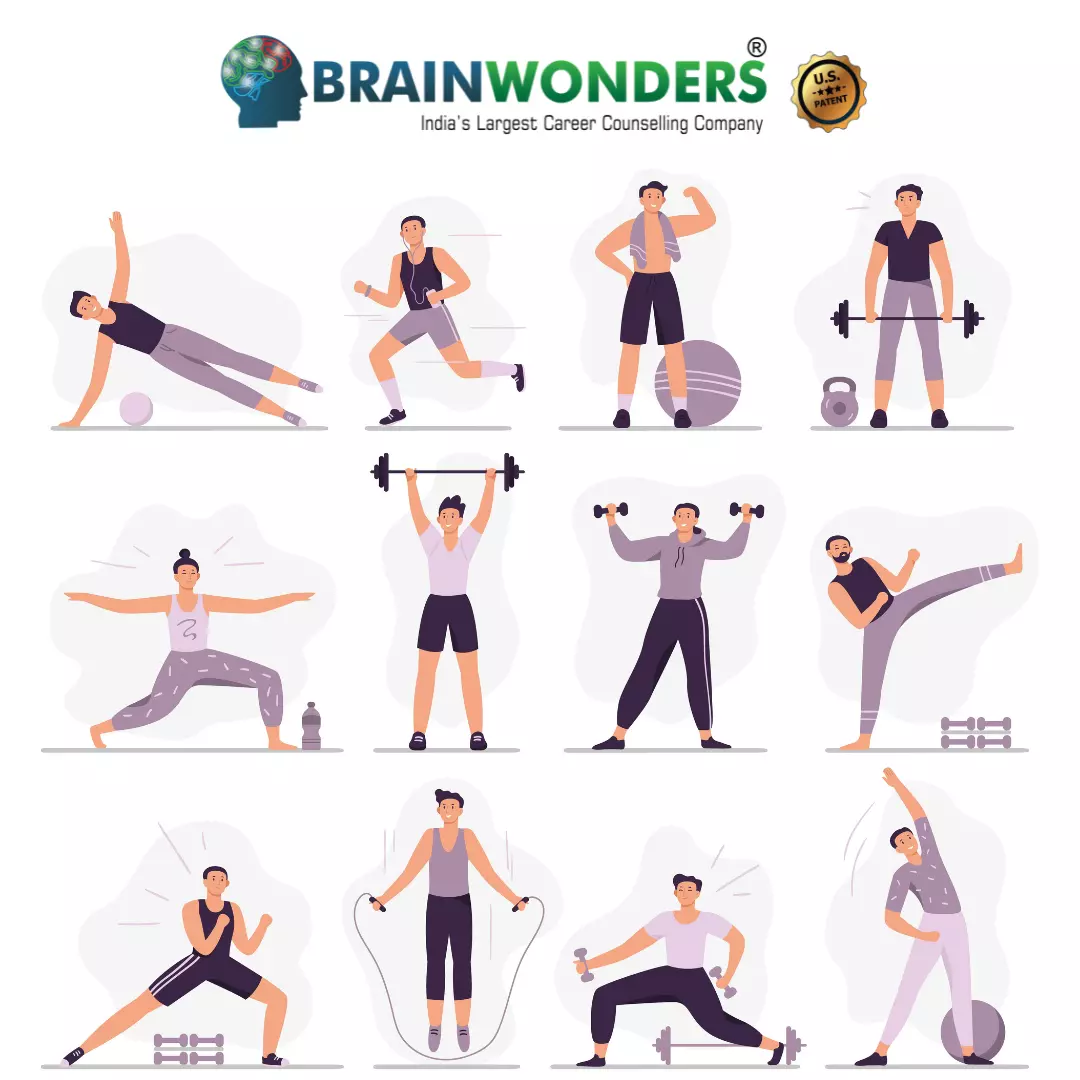

Are you aware which subjects and courses will bring you closer to your dream career?
Worry not, because the Brainwonders test and guidance will not only help you know it, but also follow it!
Blog
22 November,2022 | By Brainwonders

Athletic trainers (ATs) are multi-skilled health care professionals that provide service or treatment under the guidance of or in conjunction with a physician, in line with their education, training, and state statutes, rules, and regulations. As members of the health care team, athletic trainers provide primary care, injury and disease prevention, wellness promotion and education, emergent care, examination and clinical diagnosis, therapeutic intervention, and rehabilitation of injuries and medical problems.
The prevention, assessment, diagnosis, treatment, and rehabilitation of all forms of injuries and medical conditions, whether they be sudden, acute, or chronic, are all covered by athletic training.
Visit Page: How to Take IQ Test Online? IQ Test for Kids – Brainwonders
Students study at the undergraduate or graduate level, athletic trainer education typically includes traditional coursework and clinical experiences. Students take courses in topics like:
According to the National Athletic Trainers Association, Athletic trainers must graduate from a bachelor's or master's program. The Board of Certification (BOC) examination for athletic trainers encompasses testing in the following domains:
The BOC examination is currently the only program for athletic trainer certification that is recognised by the National Commission on Certifying Agencies.
Also Read Eveything You need to know about Courses to become a Teacher.
Personal trainers and athletic trainers are sometimes confused. An athletic trainer and a personal trainer, on the other hand, have significantly different educations, skill sets, employment requirements, and patients. The athletic training academic curriculum and clinical training both follow the medical model. Athletic trainers must get a bachelor's or master's degree, with a master's degree accounting for 70% of ATs.
| Educational services - state, local, and private | 42% |
| Hospitals - state, local, and private | 20% |
| Offices of physical, occupational, and speech therapist | 11% |
| Self-employed workers | 2% |
| Fitness and recreational sports centers | 6% |
Work environments for athletic trainers can include high schools, colleges, universities, professional sports teams, hospitals, rehabilitation clinics, physicians' offices, corporate and industrial institutions, the military, and the performing arts. Regardless of their practice setting, athletic trainers practise athletic training (or provide athletic training services) according to their education and state practise act.
Athletic trainers mainly treat injuries related to activities such as football, hockey, basketball, golfing, tennis, water skiing, swimming, gymnastics, etc.
Recommended: Things That You Need to Know to Be an Accountant
This blog identifies some of the abilities that athletic trainers utilise regularly to prevent injury and disease as their role in society:
Examine patients or customers to look for potential injuries or illnesses, as well as risk factors that could put them at risk of injury or sickness. These processes include the items mentioned below, however, they are not limited to them:
Recommended: Drug Inspector: An Upcoming Field In India
Gather and assess environmental (e.g., ambient temperature, relative humidity, heat index, lightning) and patient/client data to make appropriate recommendations for patient or client safety and activity continuation or suspension (e.g., hydration status).
Emphasize the need for acclimatisation and hydration and electrolyte balance in the prevention of heart disease to patients, clients, coaches, and parents.
Create and implement emergency action plans to ensure that medical workers are ready in the event of an emergency.
To lower the risk of injury and sickness, create and implement conditioning programmes (flexibility, strength, and cardiovascular fitness).
Inspect facilities to ensure that they are safe, sanitary and that equipment is in good working order.
Recommended: A Golden Opportunity For A Company Secretary
Patients and clients should be educated and advised on the nutritional elements of physical activity. Because proper nutrition can help patients or clients maintain a healthy lifestyle, the athletic trainer is frequently the first point of contact for active patients/clients with nutritional questions. In terms of nutrition, athletic trainers should:
Recommended Read: Facts about a Company Auditor.
To reduce the risk of damage or re-injury, choose, apply, evaluate, and modify preventive and protective equipment as well as other specialised devices for patients/clients.
Athletic trainers FAQs:
1. What are other similar career options as an athletic trainer?
Ans: Coaches, exercise physiologists, massage therapists, Occupational therapists, physical therapists, physician assistants, etc., are some similar career options as an athletic trainer.
2. What is the salary of an athletic trainer?
Ans: The median average salary for athletic trainers is $48.4k. However, it can reach as high upto $76.18k.
3. What is the role of athletic trainers in colleges?
Ans: Athletic trainer covers practice sessions and home and away competitions, supervising the educational experiences of athletic training students.
Worry not, because the Brainwonders test and guidance will not only help you know it, but also follow it!